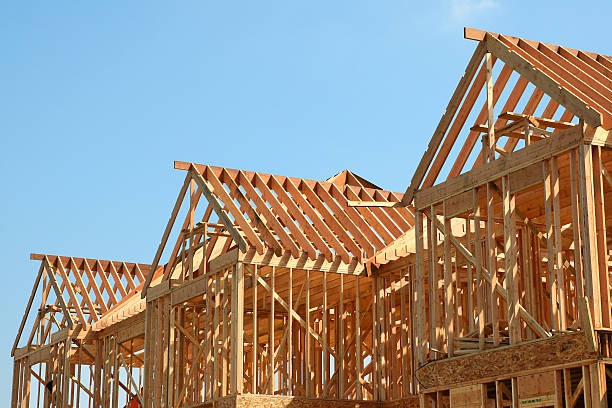Building a home is an exciting yet daunting task. With various moving parts, ensuring that everything goes according to plan is crucial. Effective project management can make the difference between smooth, timely construction and a stressful, delayed project. Let’s explore how you can keep your home-building project on track and stress-free.
Understanding the Basics
Before you dig into the ground, understanding the basics of project management is key. Project management in home building involves planning, executing, and overseeing every aspect of the construction process. The goal is to stay within budget, meet deadlines, and ensure quality workmanship.
The Importance of a Realistic Plan
A solid plan is the backbone of any successful project. Start by:
-
Defining your goals
-
Setting a budget
-
Establishing a timeline
Include milestones and give yourself some buffer time for unexpected delays.
Be prepared to adjust the plan as you move forward.
Finding the Right Team
Bringing the right people on board will make or break your project. From architects to contractors, each team member plays a critical role. Look for professionals with experience in the type of home you wish to build. For instance, you might search for experts with a track record in quality rental property design and build to ensure your home’s value and functionality.
Communication is Key
Frequent and open communication with your team is vital. Regular meetings help you stay informed and address any issues promptly. Use technology like project management software to keep everyone connected and on the same page.
Managing the Budget
Staying within budget is one of the biggest challenges in homebuilding. Cost overruns can derail your project and cause unwanted stress.
Tips for Budget Management
-
Track expenses: Regularly review where your money is going and compare it with your planned budget.
-
Plan for contingencies: Unexpected costs will arise. Allocate around 10-15% of your budget to handle surprises without disrupting your finances.
-
Negotiate: Don’t hesitate to negotiate better deals with suppliers and contractors.
Monitor Progress and Quality
Your role doesn’t end once the project begins. Actively monitoring construction progress is crucial.
Regular Site Visits
Visit the construction site often to:
-
Ensure that work is progressing as scheduled
-
Check the quality of the workmanship
-
Address any concerns or changes immediately
Leveraging Professional Inspections
Consider hiring an independent inspector to verify the quality of the work. They can spot issues that you might miss and ensure compliance with local building codes.
Avoiding Common Pitfalls
Many home-building projects face similar challenges. Being aware of these common pitfalls can help you avoid them:
1. Changing Plans Midway
While some adjustments are inevitable, major changes can lead to delays and increased costs. Stick to your original plans as much as possible.
2. Lack of Communication
Keep all parties informed. A breakdown in communication can lead to misunderstandings and errors.
3. Neglecting Local Regulations
Ensure all permits and regulations are in place. Ignorance of local laws can halt your project and lead to legal troubles.
The Role of Technology
Embracing technology can streamline your project management efforts. From 3D modeling to project management apps, the right tech can improve efficiency and communication.
Utilizing Construction Management Software
Consider using apps to track progress, manage documents, and communicate with your team. This tech-savvy approach can help you maintain control over your project.
Working with Local Experts
Engaging local professionals can greatly benefit your project. Local Chester home builders, for example, bring valuable knowledge of regional building styles and regulations, ensuring your project complies with local norms.
Benefits of Local Knowledge
-
Understanding local building codes
-
Access to local suppliers
-
Familiarity with the local climate, which influences building practices
Final Inspections and Handover
As you near the end of the construction phase, thorough inspections ensure everything is completed to your satisfaction.
Preparing for Final Inspections
-
Walk through the house with your contractor
-
Compile a list of any unfinished or unsatisfactory items
-
Set a timeline for addressing these issues
Smooth Handover Process
Once all tasks are completed, conduct a final walkthrough. Make sure that all systems (plumbing, electrical, HVAC) are operational. Collect all warranties, manuals, and relevant documents.
Ensuring Post-Construction Support
Once your home is built, post-construction support is essential to address any issues that may arise after you move in.
Establishing a Warranty Period
Ensure that your contract includes a warranty period. This will cover any necessary repairs or adjustments, providing peace of mind as you settle into your new home.
Building a Relationship with Your Builder
Maintain a good relationship with your builder for ongoing support. They can offer advice and services for future maintenance or modifications, ensuring your home remains in excellent condition.
Engage professionals with local expertise, such as seasoned home builders in Bridgewater, to elevate your project’s success. With clear communication and a solid plan, you’re on your way to realizing your dream home.
Final Thoughts
Effective project management is your ally in ensuring your home build stays on schedule and within budget. By understanding the basics, assembling the right team, managing the budget, and maintaining quality control, you can navigate the complexities of home building with confidence.


